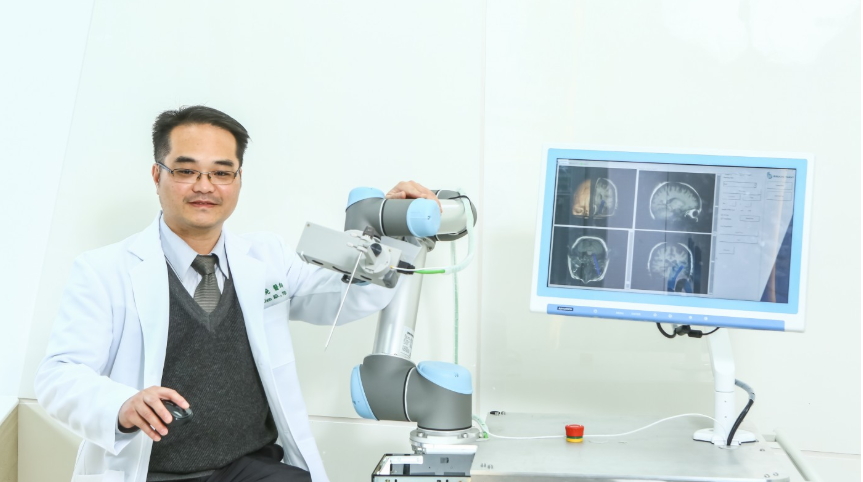Taiwanese Surgical Robotics Startup Uses AI to Help with Brain Surgery

Taiwanese robotics startup Brain Navi Biotechonlogy Co (Open in new window). has built a system that uses artificial intelligence (AI) and computer vision to guide neurosurgeons during brain surgery.
As robotics in medicine becomes more widely used, Brain Navi Biotechonlogy Co. says on its website that its Brain Navi navigation system can “provide precise information and real-time images to reduce the risk of surgical complications.”
“It is [like] an autopilot system for neurosurgeries,” Brain Navi founder and CEO Jerry Chih-Hsiao Chen said in an interview with Business Next.
The company calls its system “the third eye and hand of the doctor.”
The system’s robotic arm and camera system will be able to work at a positioning accuracy of less than one millimeter, more than what a human surgeon can do, Chen said.
Founded in August 2015 and headquartered in Hsinchu of northern Taiwan, Brain Navi Biotechonlogy set out to merge emerging technologies such as artificial intelligence (AI) and computer vision into robotic-assisted guidance system for neurosurgeons.
How it works
Brain Navi’s R&D staff has been working on camera-based computer vision algorithms to estimate 3D geometry and motion during brain surgeries. The system is built to help surgeons come up with a surgery plan based on pre-operative imagery, including MRI scans of internal body structures.
A deep-brain surgical procedure for implanting electrodes that stimulate areas in the brain normally takes over eight hours to complete the procedure. The Brain Navi system cuts that time to less than eight minutes and reduces the time patients spend under anesthesia, Chen said.
“Brain Navi Surgical Navigation System provides clear and precise guidance for doctors and minimizes the loss of normal brain tissues,” Chen said in a YouTube video posted in August 2017.
Chen said in a report that the Brain Navi system can particularly help surgeons do robotic surgery for Parkinson’s disease. The Brain Navi surgical robot can be used to help place electrodes in the brain to provide deep brain stimulation.
The company faces competition from international players such as Intuitive Surgical, Johnson & Johnson and Medtronic. Brain Navi expects its system to help meet a growing demand and be among the best technologically.
The system is not in use yet. It is undergoing tests for approval in Taiwan, the United States, and Europe. The firm will eventually seek regulatory approval, including from the U.S. Food & Drug Administration.
Brain Navi announced in a Facebook post that TechCrunch Disrupt had picked its surgical navigation system and robotic arms to be shown on September 5-7 in San Francisco.
Chen is also director of urology at China Medical University’s Beigang Hospital in Beigang in Taiwan and a biomedical engineering researcher. He got a master’s degree in biomedical engineering and was a PhD candidate of National Cheng Kung University in Taiwan.
His scientific background gives Chen unique insight into surgical robotics. His research includes biomedical signal processing, nanotechnologies and medical device development.
The Stanford-Taiwan Biomedical Fellowship Program, a training program operated by the Taiwan government’s National Applied Research Laboratories (NARL), accepted Chen in 2012. He went to Stanford University to learn more about the startup ecosystem in the nearby Silicon Valley.
Inspired by the Stanford program, in 2012 Chen and other fellows founded iXensor, a medical device maker. Chen was its chief medical officer.
〔Original :Meet Startup @ TW〕
Source: Meet Global (Open in new window)